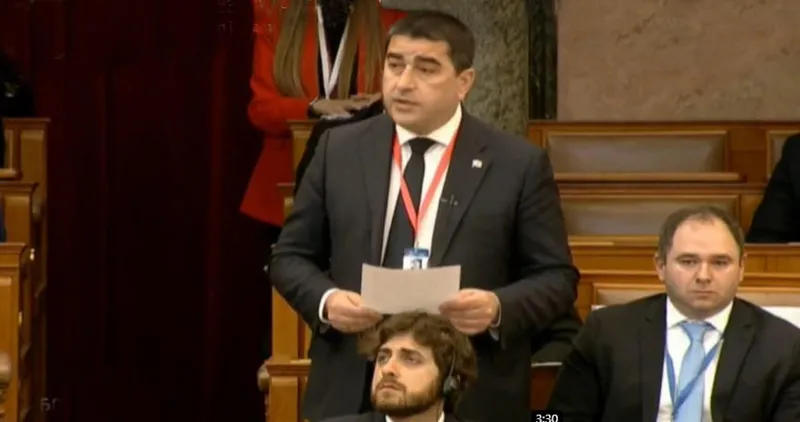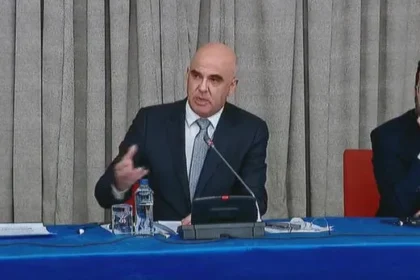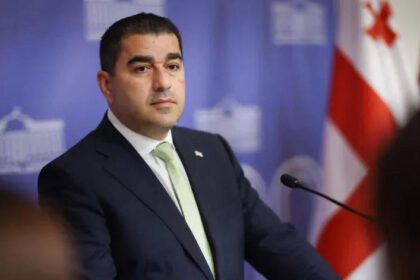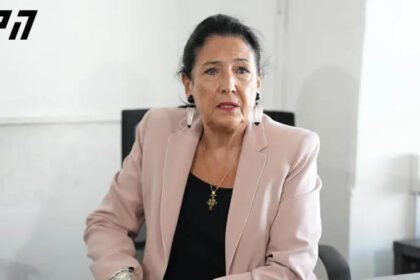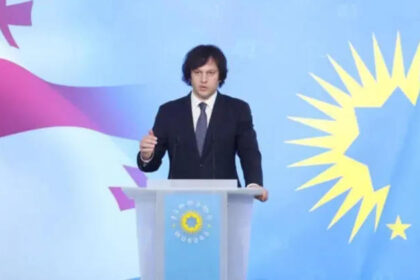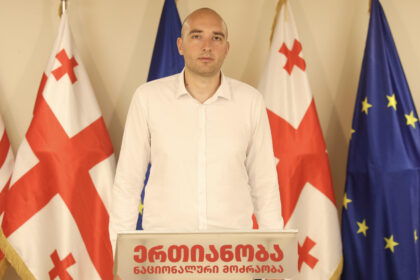**Georgia’s Parliament Speaker Speaks Out on EU Integration**
In a recent speech at the Conference of Speakers of Parliaments of EU Member and Partner Countries in Budapest, Shalva Papuashvili, the Speaker of the Parliament of Georgia, emphasized his country’s commitment to European Union integration. Despite progress made by Georgia in this regard, Papuashvili expressed concerns about how some EU structures interact with parliaments elected by the people.
Papuashvili stated that while Georgia has done a lot to advance its progress toward EU membership, the country has faced incomprehensible treatment from European institutions. He noted that some EU structures tend to speak to the parliament in the language of directives, imposing obligations without granting rights. This approach, he argued, does not align with the principle of democratic pluralism on which the EU stands.
A key example cited by Papuashvili was the demand made by the EU for Georgia to establish an extraordinary system for checking judges’ integrity, known as ‘vetting.’ This system would have been carried out by foreign actors and contradicted the fundamental principle of democracy. Papuashvili expressed doubt that any EU member state would allow such interference in its own sovereignty.
**The Importance of Small Countries’ Voices**
Papuashvili also highlighted the need for small countries to be heard just as clearly as larger ones. He argued that democracy means deliberation, not imposed enforcement, and that consensus-based decision-making ensures that decisions are made collectively, based on respect for the interests and challenges of all member states and partners.
In this context, Papuashvili suggested that it would be wise to critically assess the ongoing discussion aimed at replacing the principle of consensus-based decision-making with majority rule. He warned that such a shift could lead to decisions being made solely by centralized bodies that are not directly elected, rather than being closer to the people.
**Commentary and Analysis**
Papuashvili’s speech is significant because it highlights the concerns of small countries like Georgia about their role in EU decision-making processes. His emphasis on the importance of consensus-based decision-making and the need for small countries’ voices to be heard just as clearly as others underscores the complexity of EU integration.
Moreover, Papuashvili’s critique of the EU’s centralized structure and its tendency to impose conditions without granting rights resonates with critics of the union. His warning about the dangers of replacing consensus-based decision-making with majority rule also speaks to a broader debate within the EU about its future direction.
As the EU faces serious challenges, including questions about federalism and national sovereignty, Papuashvili’s speech provides an important perspective on how small countries like Georgia see their place in the union. His commitment to EU integration remains unwavering, but his concerns about the treatment of parliaments elected by the people should not be ignored.
Read More @ www.interpressnews.ge




